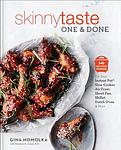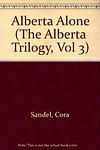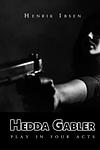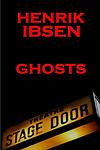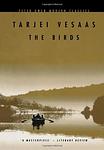The Greatest Norwegian, South African Books of All Time
Click to learn how this list is calculated.
This list represents a comprehensive and trusted collection of the greatest books. Developed through a specialized algorithm, it brings together 300 'best of' book lists to form a definitive guide to the world's most acclaimed books. For those interested in how these books are chosen, additional details can be found on the rankings page.
Genres
Countries
Date Range
Reading Statistics
Click the button below to see how many of these books you've read!
Download
If you're interested in downloading this list as a CSV file for use in a spreadsheet application, you can easily do so by clicking the button below. Please note that to ensure a manageable file size and faster download, the CSV will include details for only the first 500 books.
Download-
1. Disgrace by J M Coetzee
"Disgrace" is a novel that explores the life of a middle-aged professor in South Africa who is dismissed from his position after having an affair with a student. After losing his job, he moves to the countryside to live with his daughter, where they experience a violent attack that significantly alters their lives. The story delves into themes of post-apartheid South Africa, racial tension, sexual exploitation, and the struggle for personal redemption.
-
2. Hunger by Knut Hamsun
This novel is a psychological journey through the mind of a starving young writer in 19th century Norway. Driven by pride and stubbornness, he refuses to accept help and instead chooses to endure severe hunger and the mental and physical deterioration it causes. His struggle is not only with his physical condition but also with his own mind as he battles hallucinations, mood swings, and an increasingly distorted perception of reality. The book is a profound exploration of poverty, mental illness, and the human will to survive.
-
3. A Doll's House by Henrik Ibsen
This classic play focuses on the life of Nora Helmer, a woman living in a seemingly perfect marriage with her husband, Torvald. However, as the story unfolds, it becomes clear that Nora has been hiding a significant secret related to their finances. The revelation of this secret, and the subsequent fallout, challenges societal norms and expectations of the time, particularly in regards to gender roles and the institution of marriage. Nora's eventual decision to leave her husband and children in pursuit of her own independence serves as a powerful commentary on individual freedom and self-discovery.
-
4. Cry, the Beloved Country by Alan Paton
"Cry, the Beloved Country" is a novel about a black Anglican priest from South Africa's rural Natal region who embarks on a journey to Johannesburg in search of his sister and son. The priest grapples with the racial injustice and social inequality of apartheid-era South Africa, while his son becomes involved in political activism and is wrongfully accused of a crime. The novel explores themes of love, fear, and social justice, while highlighting the destructive effects of apartheid on the human spirit and the South African landscape.
-
5. Kristin Lavransdatter by Sigrid Undset
Set in 14th century Norway, "Kristin Lavransdatter" follows the life of its titular character from her childhood, through her tumultuous and passionate marriage to Erlend Nikulausson, to her life as a mother and eventual widow. The narrative explores Kristin's struggles with faith, societal expectations, and personal desires, offering a vivid portrayal of medieval Scandinavian life along the way. Despite the many hardships she faces, Kristin remains a strong and resilient woman, embodying the spirit of her time.
-
6. Waiting for the Barbarians by J M Coetzee
The novel is set in a small frontier town of an unnamed empire, where the magistrate lives a life of civil service and relative peace. His world is disrupted when the Empire declares a state of emergency due to rumors of barbarian uprising. The magistrate becomes a critic of the Empire's brutal and inhumane methods of dealing with the perceived threat, which leads to his arrest and torture. As he tries to understand his role in the vast political machinery, he also grapples with questions of power, justice, and humanity.
-
7. Growth of the Soil by Knut Hamsun
"Growth of the Soil" is a novel that follows the life of a man who leaves his nomadic lifestyle to become a pioneer farmer in the Norwegian wilderness. The narrative traces his journey from solitude to building a family and a thriving farm, showcasing his deep connection with the land and the cyclical nature of life. The book also explores the tension between traditional rural life and modernity, as external forces such as industrialization and societal change begin to impact the protagonist's simple existence.
-
8. Life & Times of Michael K by J M Coetzee
Set in South Africa during a civil war, the novel follows the journey of Michael K, a simple gardener with a cleft lip. When his mother falls ill, he attempts to take her back to her rural birthplace. After she dies en route, Michael continues the journey alone, struggling to survive in a war-torn landscape, while also being caught up in the bureaucratic red tape of the dystopian society. The story explores themes of freedom, survival, and the human spirit's resilience against adversity.
-
9. Sophie's World: A Novel About the History of Philosophy by Jostein Gaarder
"Sophie's World" is a unique and intriguing novel that intertwines the narrative of a young girl named Sophie with a comprehensive history of Western philosophy. Sophie begins receiving mysterious letters from an unknown philosopher and gradually becomes engrossed in the world of philosophy. The book uses Sophie's journey to explore philosophical concepts and theories, from ancient to modern times, in an accessible and engaging way, making it an excellent introduction to the subject for readers of all ages.
-
10. Burger's Daughter by Nadine Gordimer
"Burger's Daughter" is a novel centered around Rosa Burger, a white woman in South Africa during the apartheid era. The narrative delves into Rosa's life and struggle to find her identity, while also dealing with the legacy of her parents who were anti-apartheid activists. This story provides a deep look into the political and social climate of South Africa during a time of racial segregation and oppression.
-
11. The Story Of An African Farm by Olive Schreiner
The book is a pioneering work in feminist literature, set in the harsh and arid South African veld in the late 19th century. It follows the lives of two English children, Lyndall and Waldo, who live on a farm and grapple with the constraints of their isolated environment. The narrative explores themes of gender, race, and colonialism, as the characters confront the societal expectations and limitations placed upon them. Through their struggles and relationships, the story delves into existential questions and the search for personal freedom, challenging the traditional roles and beliefs of the time.
-
12. House with the Blind Glass Windows by Herbjørg Wassmo
"House with the Blind Glass Windows" is a poignant tale of a young girl growing up in Norway during the 1950s. The narrative explores her struggles with family secrets, abuse, and the oppressive nature of her small, rural community. The protagonist's journey towards understanding and overcoming her traumatic past forms the crux of the story, which is set against the backdrop of post-war Europe.
-
13. Pan by Knut Hamsun
The novel is a lyrical exploration of the beauty and savagery of nature, set in the wild landscapes of Northern Norway. It follows the story of a solitary hunter and former military man who lives in harmony with the wilderness. His peaceful existence is disrupted when he falls in love with a young woman, leading to a tumultuous relationship that reflects the untamed and unpredictable forces of the natural world around them. The narrative delves into themes of passion, isolation, and the human longing for connection, all while painting a vivid portrait of the changing seasons and the primal allure of the forest.
-
14. July's People by Nadine Gordimer
"July's People" is a novel set in a hypothetical future where South Africa's apartheid system has collapsed and the nation is embroiled in a brutal civil war. The story follows a liberal white family who, fleeing the violence, are taken in by their black servant, July, in his rural village. The book explores the power dynamics and complexities of their relationship, as they navigate this new reality where traditional roles are reversed, and grapple with issues of race, class, and privilege.
-
15. A Dry White Season by Andre Brink
Set in apartheid-era South Africa, "A Dry White Season" follows the story of Ben Du Toit, a white schoolteacher who becomes involved in the fight against the system after his gardener's son is brutally beaten by the police. As he delves deeper into his quest for justice, he becomes increasingly isolated from his community and his family, and ultimately pays the highest price for his convictions. The novel is a powerful exploration of the devastating effects of racial injustice and the courage it takes to stand against it.
-
16. Long Walk To Freedom by Nelson Mandela
"Long Walk to Freedom" is a powerful autobiography that chronicles the extraordinary life of Nelson Mandela. From his humble beginnings in a rural village to becoming the first black president of South Africa, Mandela's journey is one of resilience, determination, and unwavering commitment to justice and equality. Through his personal experiences, he provides a vivid account of the struggle against apartheid, his 27 years of imprisonment, and the eventual triumph of democracy. This book serves as an inspiring testament to Mandela's unwavering spirit and his lifelong fight for freedom and human rights.
-
17. The Alberta Trilogy by Cora Sandel
"The Alberta Trilogy" is a series of three novels that follow the life of Alberta Selmer, a young woman growing up in a small Norwegian town in the early 20th century. The trilogy explores Alberta's struggle with societal expectations, her pursuit of independence and her journey to becoming a painter. Set against the backdrop of a harsh Norwegian landscape, the series highlights the protagonist's struggle with poverty, her relationships, and her exploration of her identity and place in the world.
-
18. Hedda Gabler by Henrik Ibsen
"Hedda Gabler" is a dramatic play that centers on the life of its titular character, a woman trapped in a loveless marriage with a dull, reliable husband. She is bored with her life and longs for freedom and excitement. Her desire for control and power leads her to manipulate those around her, resulting in tragic consequences. The play explores themes of societal expectations, personal freedom, and the destructive power of boredom.
-
19. Chaka by Thomas Mofolo
This novel explores the life of Chaka, a legendary leader in Southern Africa who turns into a tyrant due to his insatiable thirst for power. The narrative focuses on his rise to power, his strategic military genius which leads to the expansion of the Zulu Empire, and his eventual downfall due to his increasing brutality and madness. The story is a blend of historical fact and folklore, creating a complex portrait of a man driven by ambition and consumed by his own power.
-
20. Down Second Avenue by Es'kia Mphahlele
"Down Second Avenue" is a semi-autobiographical account of a black man's life under apartheid in South Africa. The narrative chronicles the protagonist's journey from childhood to adulthood, detailing his experiences with poverty, discrimination, and the struggle for education. Despite the harsh realities of life under apartheid, the protagonist's resilience and determination shine through, offering a poignant and powerful critique of the socio-political realities of the time.
-
21. Giants in the Earth by Ole Edvart Rolvaag
"Giants in the Earth" is a historical novel that chronicles the story of a Norwegian pioneer family's struggles with the land and the elements of the Dakota Territory as they try to make a new life in America. It is a profound and accurate depiction of the trials, tribulations, successes, and failures of pioneer life, emphasizing the harsh realities of adapting to a new environment. The novel explores themes of man versus nature, cultural displacement, and the pursuit of the American Dream.
-
22. Peer Gynt by Henrik Ibsen
The play follows the adventures of its eponymous hero, a boastful and irresponsible Norwegian peasant who embarks on a series of fantastical and often selfish escapades. Throughout his life's journey, he encounters various mythical creatures, engages in business ventures, and pursues romantic interests, all while evading responsibility and the consequences of his actions. His quest for self-realization and identity takes him around the world, only to lead him back home to confront the reality of his wasted life and the love he scorned. The play is a poetic and satirical critique of the Romantic hero and delves into themes of existentialism, self-deception, and the nature of true self-fulfillment.
-
23. Selected Plays of Henrick Ibsen by Henrik Ibsen
This compilation includes a selection of plays by a renowned Norwegian playwright, who is often referred to as the father of realism. The collection showcases his talent for exploring complex human emotions, societal expectations, and moral dilemmas. The plays often feature strong female characters, a rarity for the time, and challenge the norms of the 19th-century society, making them timeless and relevant even today.
-
24. Dusklands by J M Coetzee
"Dusklands" is a novel divided into two distinct parts, each examining the theme of imperialism. The first part follows a psychologically unstable American government researcher during the Vietnam War, who is tasked with developing propaganda to justify the conflict. The second part is a historical narrative set in the 18th century, exploring the violent colonization of South Africa by the Dutch. The stories parallel each other, highlighting the destructive nature of imperialism and the psychological effects it has on individuals.
-
25. The Birds by Tarjei Vesaas
"The Birds" is a poignant story about Mattis, a mentally challenged man living in rural Norway who struggles to fit into society. He lives with his sister, who is his only caretaker and connection to the outside world. Mattis's life changes when he becomes fascinated by a pair of rare birds that decide to nest near his home. The arrival of these birds and a subsequent encounter with a lumberjack disrupt the quiet routine of his life, leading to a series of events that force him to grapple with his place in the world.
Reading Statistics
Click the button below to see how many of these books you've read!
Download
If you're interested in downloading this list as a CSV file for use in a spreadsheet application, you can easily do so by clicking the button below. Please note that to ensure a manageable file size and faster download, the CSV will include details for only the first 500 books.
Download











